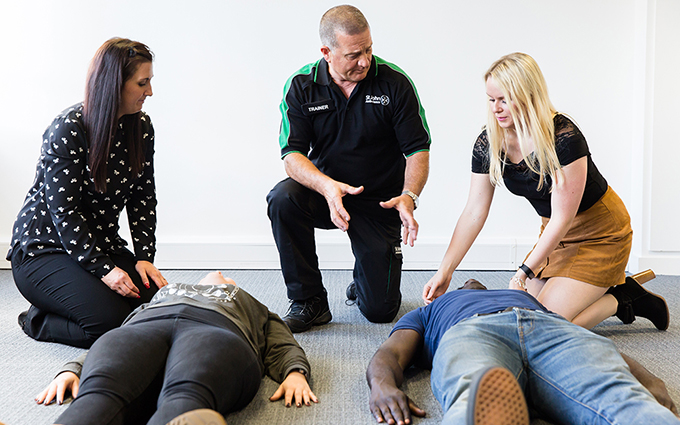Minor head injury:
- Hold ice pack against head.
- Assess level of response with AVPU scale.
- If unresponsive or worried call 999/112.
Severe head injury:
- Call 999/112.
- Monitor breathing, prepare to do CPR if necessary.
- Try not to move in case of a spinal injury.







